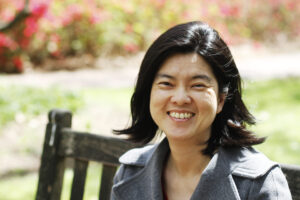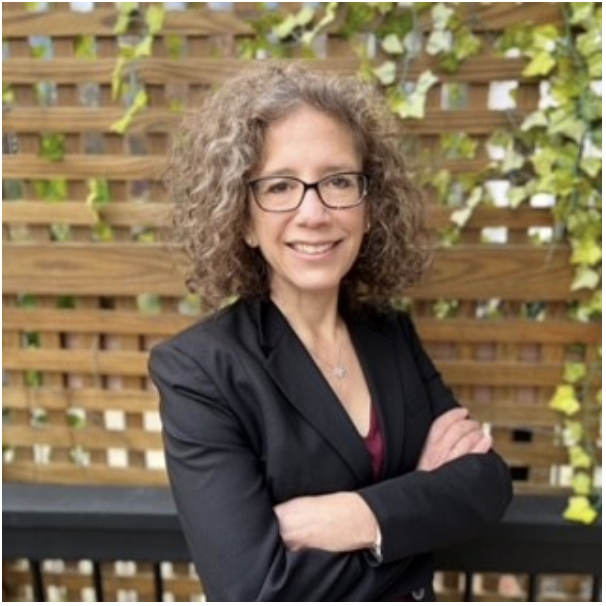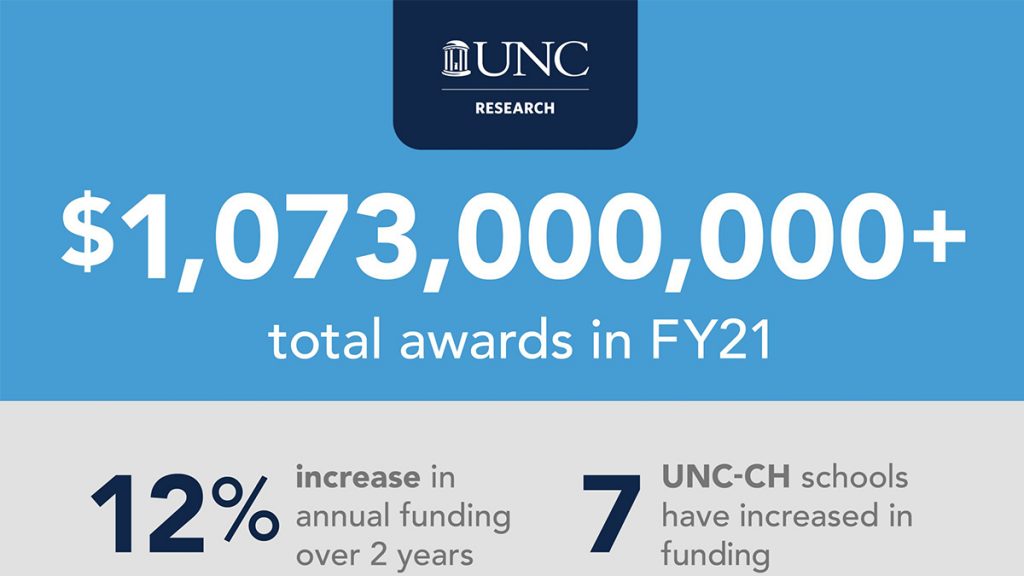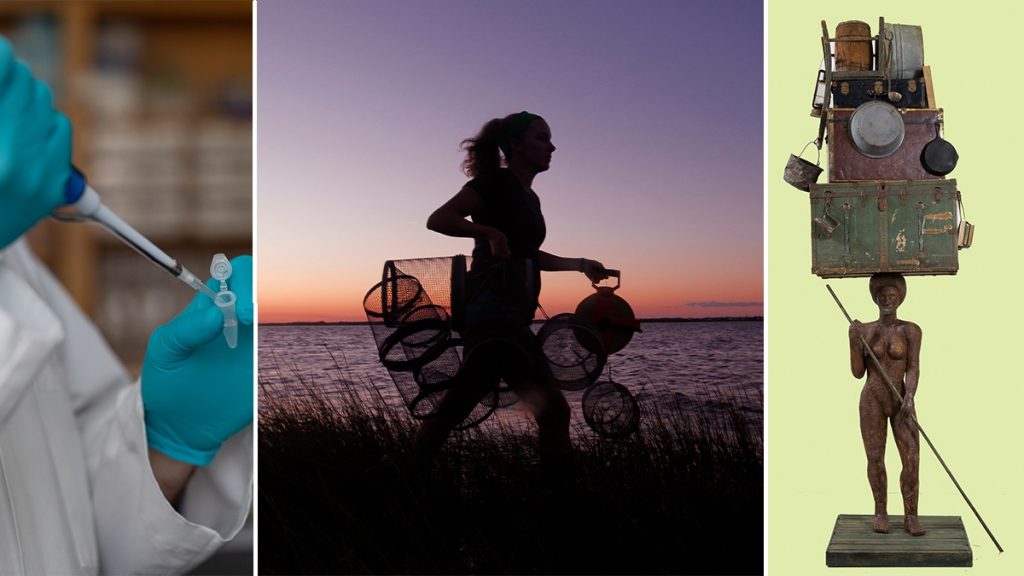Discover
Discover
Environmental Scan
We look to faculty to help us comprehend and solve immediate challenges. We rely on them to inspire us through imagining new works of art, music, literature, theater and creative expression that remind us of human grace. And we need them for discovery: for exploring new ideas, solving problems, imagining different ways of seeing, working to fill gaps in human knowledge and for the simple reason that we do not know what knowledge we will need next.
Premier universities create conditions for discovery by sustaining robust, multi-stranded, creatively adaptable research, scholarly and artistic missions. Carolina is one of a small number of such universities. Today, UNC-Chapel Hill is the 12th largest research university in the United States, ranks fifth in federal research expenditures, fourth for federally funded health science research, and first in the nation for federally funded social and behavioral science research and development. More than 150 Carolina faculty are members of the National Academies and other prestigious learned societies.
Increasingly, multifaceted approaches to discovery are prized. In the sciences, federal research funding agencies set research priorities, and the National Institutes of Health (NIH), Carolina’s top funding source, favors highly nimble and collaborative teams spanning multiple universities and research centers for funding that addresses national priorities. Carolina exemplifies that approach. For example, we have consistently invested in our infectious disease research enterprise, which includes a wide range of experts across the University that are deeply engaged in coronavirus research. This investment has enabled our researchers to work in nimble teams to discover and test cures and therapies for COVID-19 and pioneer strategies that will combat the spread of the virus.
Carolina has significant opportunities to compete for grants by expanding its partnerships internally and with other universities, industries and external organizations and continuing to diversify its funding sources. To this end, Carolina has established seven institutional research priorities aligned with those of national funding agencies, such as NIH and the National Science Foundation: Brain & Neuroscience; Cancer; Data Science; Environment; infectious disease; Opportunity, Well-Being & Culture; and Precision Health & Society.
At the same time, Carolina’s literary scholars, historians, geographers, anthropologists, religious studies scholars, and others have sustained long-term inquiry in North Carolina, across the United States and abroad. They pursue systematic, empirical understandings and careful analyses of the shifts taking place, and in doing so secure highly competitive resources from both private funders, such as the Andrew W. Mellon Foundation and the Carnegie Endowment for International Peace, and federal agencies including the National Endowments for the Humanities and the Arts. New initiatives and long-standing programs including the Humanities for the Public Good, Carolina Performing Arts and the Ackland Art Museum, build constituencies on campus and beyond to enjoy the expanded horizons that art brings and to join the debates that humanities spark.
Carolina’s students also play key roles in the research and discovery mission of the university. Graduate students provide critical support for faculty research, and these collaborations help them prepare to become the next generation of scientists. The IDEAs in Action General Education Curriculum will provide opportunities for all undergraduates to carry out research in a wide variety of disciplines, including leveraging creative expression, practice and production.
Strategic Objectives and Opportunities
Objective 4.1
Pursue creative collaboration in research and scholarship.
Strategic Opportunities
- Develop the implementation plan for a new School of Data, Information and Society.
- Implement the clinical trial management system for the University and initiate the Clinical Research Support Organization as a pilot in the School of Medicine to enhance clinical research and clinical decision support.
- Initiate studies to explore focus areas and enhance capabilities in brain neuroscience.
- Support research for the prevention, treatment, and cure of COVID-19, including the development of therapies and vaccines, testing and assessment to prevent community spread, and addressing public health and economic impacts
- UNC Rapidly Emerging Antiviral Drug Discovery Initiative (READDI): Develop five novel anti-viral drugs to Phase I/II in five years to be ready for use in the next pandemic by academic and industry partners working collaboratively through UNC’s Rapidly Emerging Antiviral Drug Discovery Initiative (READDI)
- Host a Statistical Research Data Center whereby researchers across disciplines can access non-public microdata from the Census Bureau’s economic and demographic surveys and censuses, administrative data and restricted use data from federal agencies.
- Implement the Southern Futures Initiative to connect the arts, history, public health, and entrepreneurship, supported by world-class archives and library expertise with the people and communities who own them.
Objective 4.2
Encourage artistic practice and artist-scholar synergies.
Strategic Opportunities
- Implement IDEAs in Action General Education Curriculum’s Focus Capacity. Develop an inclusive, contemporary, student-centered General Education Curriculum that leverages creative expression, practice and production.
- Broaden our expectations of research teams to include foundational contributions from transformative and dynamic artists, creative humanists and performers to reflect the University’s pursuit of new knowledge.
- Update the concept of Arts Everywhere as a comprehensive initiative to make the arts a fundamental part of University culture and daily campus life.
Objective 4.3
Lead in solving the world’s most challenging problems.
Strategic Opportunities
- Develop and implement the three lanes of the Institute for Convergent Science — Convergent Commons, Pre-commercial Demonstration and Commercial Launch — where compelling problems, innovation frameworks and integrated teams converge to deliver solutions to the world.
- Enable faculty-driven interdisciplinary projects such as Creativity Hubs, Idea Grants and other campus and unit-based initiatives to concentrate talent and resources on bold ideas free from typical organizational boundaries, with the goal of moving new discoveries into practice.
Co-Captains

Associate Vice Chancellor for Research
Joyce Tan, Ph.D., is Associate Vice Chancellor for Research and Associate Professor of Genetics. She is responsible for developing and implementing strategic research initiatives, overseeing the Office of Research Development and the Office of Postdoctoral Affairs. Dr. Tan facilitates interdisciplinary research programs and initiatives to grow the university’s global reputation and promotes innovation and entrepreneurship by fostering research partnerships with external public and private organizations. Prior to joining UNC-Chapel Hill, Dr. Tan led therapeutic discovery and development programs at Pfizer Pharmaceuticals Global Research and Development and Anadys Pharmaceuticals.

Vice Chancellor for Research
Professor Penny Gordon-Larsen was appointed interim vice chancellor for research on March 14, 2022. She previously served as the UNC Gillings School of Global Public Healthʼs associate dean for research, a position she held since September 2018. In that role, she provided intellectual and strategic leadership and vision for the schoolʼs research programs and activities, positioning her well to take on oversight of UNC-Chapel Hill’s research enterprise.




